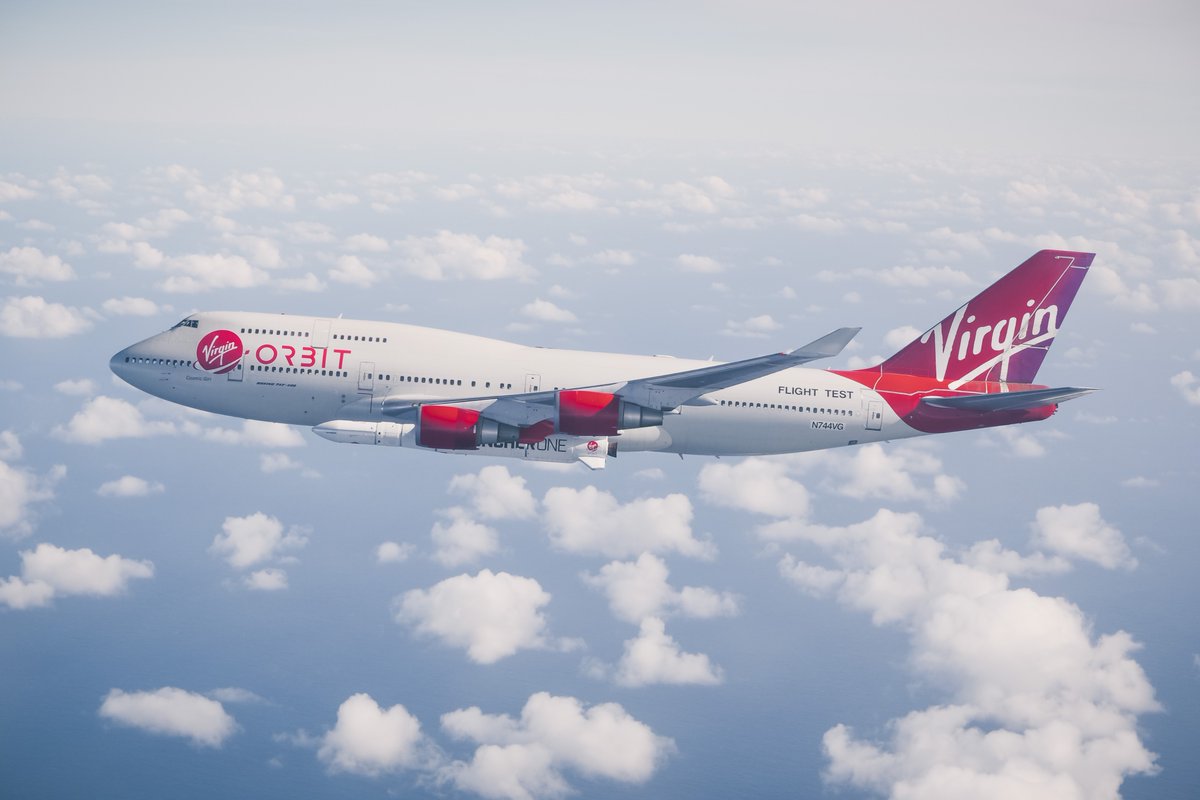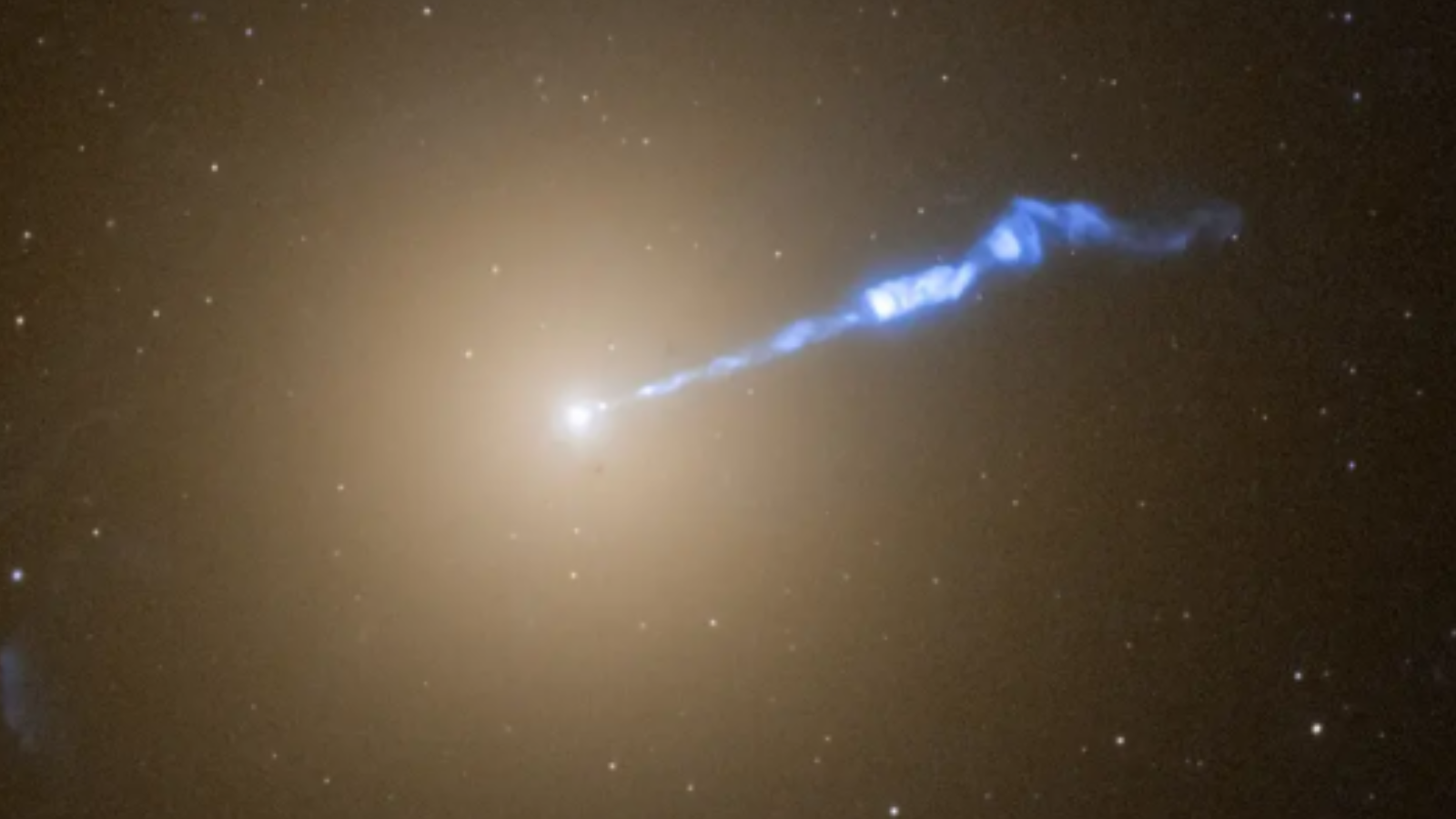Virgin Orbit's Rocket-Launching Plane Keeps Taking Test Flights with LauncherOne
The dazzling first trip to space by Virgin Galactic's crewed SpaceShipTwo Unity may have grabbed headlines last week, but another Virgin space launch company recently hit a milestone of its own.
In November, a specially modified 747-400 cruised through the air, lugging a 70-foot-long rocket under its wing, in the first successful test flight for Virgin Orbit's LauncherOne. More test flights followed in early December.
While the ultimate aim is to launch satellites from this "flying launchpad," the mid-November test flight proved the basic concept is sound. Engineers now know the rocket pairs seamlessly with "Cosmic Girl" — the name for the custom-fit 747 — and previous mating and taxi tests with the rocket-plane duo also went seamlessly. [Virgin Orbit's Carrier Plane Meets Rocket for 1st Time]
According to Virgin Orbit, which is a spinoff of Virgin Galactic, the first satellites from this initiative are set to fly into orbit early in 2019, providing an extensive test campaign goes as planned. The next steps include more Cosmic Girl flight tests where engineers gather data about the plane, rocket, avionics and flight computers. Another key milestone will be when Cosmic Girl drops an unpowered rocket during a future flight, "generating critical data about Cosmic Girl's and the rocket's performance as it freefalls through the atmosphere," Virgin Orbit representatives said in a statement.
But company representatives took this first flight as a welcome opportunity to announce progress in the Virgin Orbit initiative, which is trying to compete with other companies launching small cubesats and other small satellites using traditional rockets. Indeed, on Dec. 16, spacecraft startup Rocket Lab successfully delivered 13 small NASA satellites into orbit.
Breaking space news, the latest updates on rocket launches, skywatching events and more!
In the face of this competition, Virgin Orbit's own test flight flew flawlessly.
"The vehicles flew like a dream today," Kelly Latimer, Virgin Orbit chief pilot and a retired Air Force lieutenant colonel, said in the statement, which was released Nov. 19. "Everyone on the flight crew and all of our colleagues on the ground were extremely happy with the data we saw from the instruments on-board the aircraft, in the pylon, and on the rocket itself. From my perspective in the cockpit, the vehicles handled incredibly well, and perfectly matched what we've trained for in the simulators."
Sister company Virgin Galactic made headlines of its own on Dec. 13, when the VSS Unity test vehicle successfully rocketed two test pilots beyond the boundary of space — by one definition, anyway. VSS Unity's powered-on engines propelled the vehicle to 51.4 miles (82.7 kilometers) in altitude. That's a squeak higher than the United States Air Force's definition of space, but well below the better-known Karman line boundary at 62 miles (100 km) up.
Follow us on Twitter @Spacedotcom and on Facebook. Original article on Space.com.

Elizabeth Howell (she/her), Ph.D., was a staff writer in the spaceflight channel between 2022 and 2024 specializing in Canadian space news. She was contributing writer for Space.com for 10 years from 2012 to 2024. Elizabeth's reporting includes multiple exclusives with the White House, leading world coverage about a lost-and-found space tomato on the International Space Station, witnessing five human spaceflight launches on two continents, flying parabolic, working inside a spacesuit, and participating in a simulated Mars mission. Her latest book, "Why Am I Taller?" (ECW Press, 2022) is co-written with astronaut Dave Williams.

